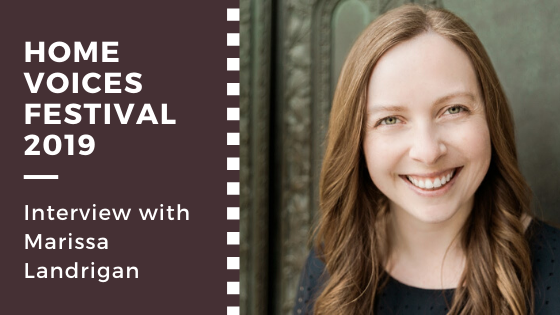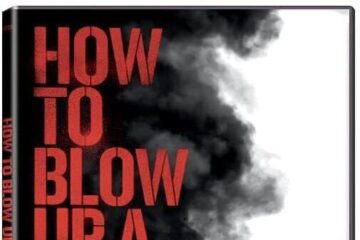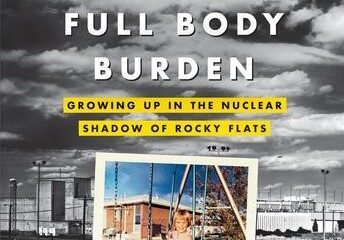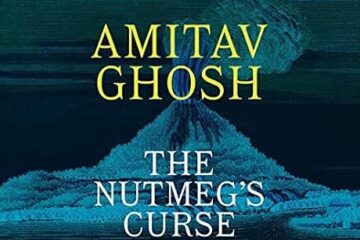The annual Home Voices Festival brings together alumni and current students of the Creative Writing and Environment program at Iowa State University. The Festival celebrates the accomplishments the alumni have had since graduating, as well as current students’ successes as they make their way through the program. This reading is often the first event of the spring semester’s Pearl Hogrefe Visiting Writers Series at Iowa State.
These interviews were conducted after the 2019 Festival, held on January 27th, by recent ISU graduate, Shelby Rae Stringfield. You can find her on Twitter @Rae_Stringfield.


Hi Marissa. I enjoyed your reading at Home Voices and getting to talk with you about your life as a writer. I’d like to ask you a few questions so our readers can get to know you and a bit about your journey to become the writer you are today, as well as your aspirations going forward.
Your book The Vegetarian’s Guide to Eating Meat follows your exploration of the intricacies of food, culture, and self. Did writing about such a personal topic illuminate anything about yourself that surprised you? What was the most difficult part of composing this collection, either on a personal front or as a writer?
There were many things I uncovered (or realized) about myself in the process of writing this book: some were surprises, and some were more subtle, more like coming to terms with something I’d already known. One element that I had to really grapple with as I wrote was trying to figure out why I’d always felt alienated from my family growing up; they were loving and kind and accommodated my changing eating habits, so I had to write my way into discovering that I’d sort of willingly played the role of out cast. This wasn’t something they’d done to me, but a mantle I’d picked up myself. In digging deeper and asking myself why I’d make a choice like that was a significant part of the writing, I discovered there were echoes of that decision in the various decisions I made to keep moving around the country in my 20s, and this all sort of culminated in a really challenging personal question: was I keeping myself from being happy? Was I capable of being at peace at choosing to find community? I’m not sure I totally figured out the answers to those questions, but I do know that writing about food and talking about it so much helped me find a way to connect more deeply with my family, and realize how much I’d had in common with them all along.
During your reading we heard that writing this collection took you on some adventures, such elk hunting. What was the most exciting or illuminating experience you had? What prompted you to, for example, visit a slaughterhouse rather than doing research from a distance, such as online?
I’m the kind of researcher that actually usually prefers to do stuff from a distance — online, by phone, etc. — because I’m really shy. But there were just ways I knew that wasn’t going to cut it for this story; so much of the book is about making active, not passive, choices, and engaging with your food and your community with intention, that conducting research at arm’s length would have been disingenuous. So I made up my mind to take every opportunity that came, even when it made me uncomfortable, and one sort of led to the next: because I volunteered on the farm, I met the man who owned the slaughterhouse. That, and accompanying Rick on one of his hunts, were both thrilling in the sense that they were hard and challenged me but also taught me more than any online research ever could have.
What is your writing process like when your research is on-location? Do you take notes during an experience you intend to write about, or wait until later to flesh it out from memory? How would you say your process affects the finished piece?
This is probably not a great approach, but I actually tend not to take many notes when I’m on location, at least for short term experiences. For example, I didn’t take any notes at the slaughterhouse, or while hunting; in both cases I had a mini notebook in my pocket and just never took it out because I was too busy staring. But I somehow have very clear memories. There were moments in both those cases when I was saying to myself “oh my god, you have to remember this, this image is everything, burn it into your brain,” rather than writing it down. The very first image that opens the book is one of those. But while I was working on the farm, since that was over the course of about 10 days, I did have a notebook that I would jot lists of details and bits of dialogue down in, usually at the end of each day. And then, maybe a week or so after the experience, I sit down and actually recreate the scenes from whatever combination of memory and notes I have. Hopefully, that process gives me the opportunity to create the distance that I need to properly reflect on the memory, while still giving me access to the specifics and sensory details I need to create compelling scenes, which is always the balance I’m striving for.
The subtitle of your book is A Young Woman’s Search for Ethical Food. How would you say your time at Iowa State’s MFA program for Creative Writing and Environment, where environmental ethics are often the focus of conversation and even entire courses, impacted your interests and writing?
The environmental focus was the reason I came to Iowa State for my MFA: I’d known for years that I wanted to do environmental and place-based writing. Really, almost all of my work is, in some way, influenced by notions of geography and community and home. But when I started in the program, I thought I’d write a collection of lyric essays as my thesis, about moving around the country and trying to find home in a bunch of different environments. It was really the program’s focus on environmental ethics (in combination with living in Iowa, which was a completely new landscape for me) that pushed me to start thinking about my food choices. Living in Iowa is why I decided to start eating meat again, and the conversations I’d been having in my classes were the root of my new ways of thinking about ethical eating. I had so many questions about food and community and land ethics, that I couldn’t not write about that. So it’s really no exaggeration to say I wrote this book because of the Creative Writing & Environment program, and in another place or another program, I might have written a completely different one.
Lastly, what’s next for you as a writer? Do you have a project in the works, or anything else exciting you’d like to share?
I have a project idea I’m working on — I’ve been working on it for years, actually — but it’s still very much in the reading / researching / thinking phase. The idea is a fragmented, lyric meditation on migration, marriage, motherhood, and anxiety. I plan to weave together personal narrative strands about my experiences with anxiety and becoming a partner and parent with researched strands on the natural and cultural history of animal and human migration. I think freedom of migration and a dismantling of borders is really important, given our political climate, and I want to explore that. I’ve just begun writing bits and pieces of this over the last year, since I’ve also been preoccupied with the project of my new daughter, who just turned one. Hopefully there will be another book baby soon!
Marissa Landrigan is the author of The Vegetarian’s Guide to Eating Meat (Greystone Books, 2017), a memoir chronicling her journey from vegetarian to ethical omnivore. Her creative nonfiction has appeared in numerous journals, including The Atlantic, Creative Nonfiction, Salon, Guernica, Orion, Gulf Coast, The Rumpus, Diagram, South Loop Review, and others. She holds an MFA in Creative Writing & Environment from Iowa State University, and is currently an Associate Professor at the University of Pittsburgh at Johnstown, where she teaches creative, digital, and professional writing. She lives in Pittsburgh with her husband, daughter, and their goofy dog.




